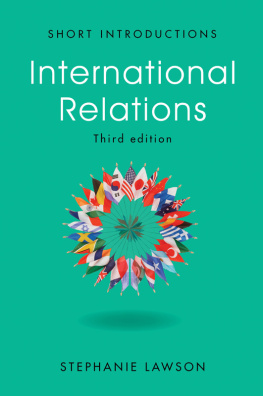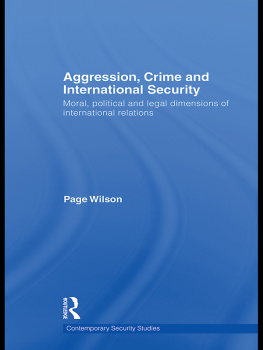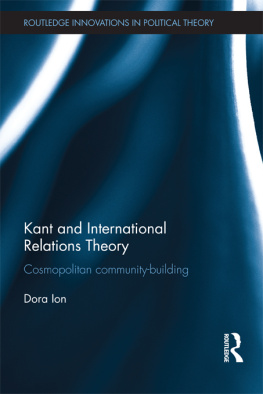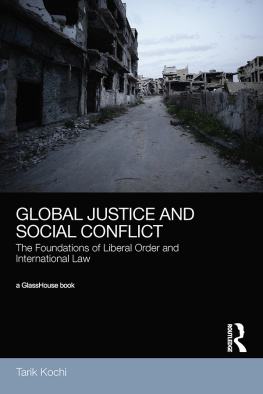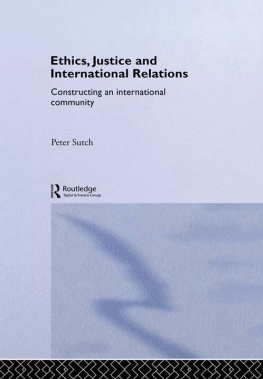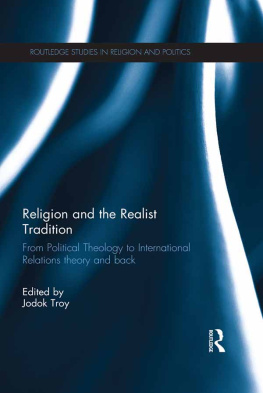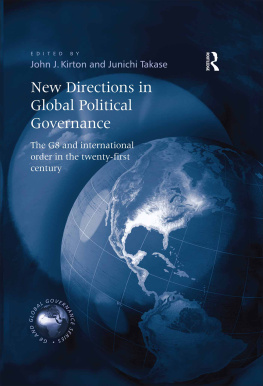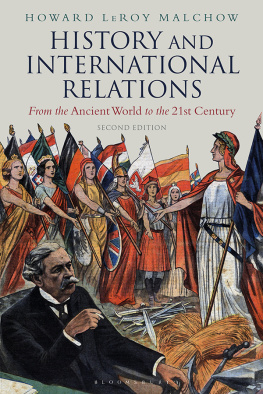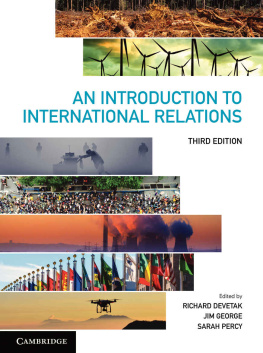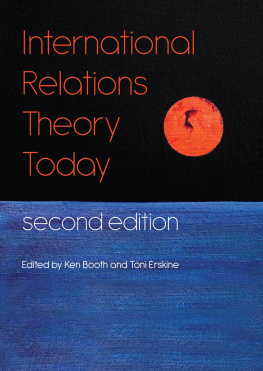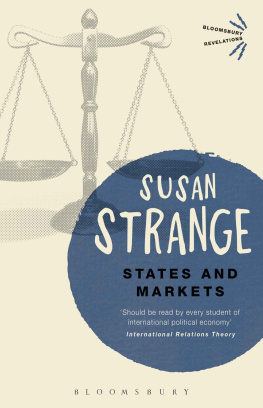
SHORT INTRODUCTIONS
- Nicholas Abercrombie, Sociology
- Michael Bury, Health and Illness
- Raewyn Connell, Gender, 3rd edition
- Hartley Dean, Social Policy, 2nd edition
- Lena Dominelli, Introducing Social Work
- Jeffrey Haynes, Development Studies
- Stuart Henry, Social Deviance
- Amanda D. Lotz and Jonathan Gray, Television Studies
- Chris Rojek, Cultural Studies
Copyright page
Copyright Stephanie Lawson 2017
The right of Stephanie Lawson to be identified as Author of this Work has been asserted in accordance with the UK Copyright, Designs and Patents Act 1988.
First edition published in 2003 by Polity Press
This edition published in 2017 by Polity Press
Polity Press
65 Bridge Street
Cambridge CB2 1UR, UK
Polity Press
350 Main Street
Malden, MA 02148, USA
All rights reserved. Except for the quotation of short passages for the purpose of criticism and review, no part of this publication may be reproduced, stored in a retrieval system, or transmitted, in any form or by any means, electronic, mechanical, photocopying, recording or otherwise, without the prior permission of the publisher.
ISBN-13: 978-1-5095-0855-6 (hardback)
ISBN-13: 978-1-5095-0856-3 (paperback)
A catalogue record for this book is available from the British Library.
Library of Congress Cataloging-in-Publication Data
Names: Lawson, Stephanie, author.
Title: International relations / Stephanie Lawson.
Description: Third edition. | Cambridge ; Malden, MA : Polity Press, [2017] | Includes bibliographical references and index.
Identifiers: LCCN 2016017575| ISBN 9781509508556 (hardback : alk. paper) | ISBN 9781509508563 (pbk. : alk. paper)
Subjects: LCSH: International relations.
Classification: LCC JZ1242 .L39 2017 | DDC 327dc23 LC record available at https://lccn.loc.gov/2016017575
Typeset in 10 on 12 pt Sabon
by Toppan Best-set Premedia Limited
Printed and bound in the UK by CPI Group (UK) Ltd, Croydon, CRO 4YY.
The publisher has used its best endeavours to ensure that the URLs for external websites referred to in this book are correct and active at the time of going to press. However, the publisher has no responsibility for the websites and can make no guarantee that a site will remain live or that the content is or will remain appropriate.
Every effort has been made to trace all copyright holders, but if any have been inadvertently overlooked the publisher will be pleased to include any necessary credits in any subsequent reprint or edition.
For further information on Polity, visit our website:
politybooks.com
To Liisa Adele, James Kofi, Thomas Grainger, Annabel Grace and Kaito Maximus
Preface
As with the first and second editions, this book covers a selection of important themes in the study of IR, together with explanations of various theoretical approaches. These are presented in a way that provides the reader with a historical and contextual understanding of the subject, from the development of states in world history and the theorization of such developments to contemporary issues such as security, world order, international political economy and the phenomenon of globalization. The third edition also maintains the emphasis on a number of broad themes: the profoundly normative orientation of the IR discipline; the fact that there is nothing fixed or eternal about any particular political formation; the social nature of all political relations and institutions, including those of the international sphere; and the problematic nature of the domestic/international divide. A further theme present in the first two editions, but worth emphasizing more specifically, is the extent to which an idea of what is natural in social life finds its way into political theories and worldviews. Naturalized hierarchies based on race, gender or class, for example, have been prominent in various systems of thought, both Western and non-Western. Apart from highlighting these broad themes, the book does not champion any particular theoretical approach but rather invites readers to consider what each of the different approaches has to offer.
The second edition was organized a little differently from the first by including chapters devoted specifically to IR theory and International Political Economy (IPE), whereas the first edition integrated discussion of these topics into the more general narrative. This third edition maintains the structure of the second edition, which has proved more amenable to the way in which courses in introductory IR are generally taught. Despite the more conventional organization of the text in this way, it maintains the narrative style of the first edition, including a strong historical component, which shows the emergence of ideas and practices through time and across space. This approach enables readers with little or no prior knowledge of IR, or the more general field of political studies, to grasp essential points and ideas more readily. The third edition has also been thoroughly updated to account for important developments over the last four years or so since the second edition was published, and expanded in places where more detailed discussion seemed warranted by new developments. As pointed out in the previous editions, however, it is not a text that focuses simply on the here and now but rather on what historian Fernand Braudel called the longue dure. This reflects my view that the present must be understood as the product not just of an immediate past, but of the much longer span of human history. Having said that, I am only too aware of the fact that coverage of areas such as the history of political thought, the theorization of international relations and the complexities of international political economy, among others, is necessarily limited. This is in the nature of a short introduction to any complex subject. I have, however, included many references to the relevant literature as well as further readings at the end of each chapter to indicate where more detailed information and analyses may be found, along with some questions for discussion which are designed to help students think through the matters raised in each chapter.
Another issue of which I'm very much aware, and which is addressed only partly in the text, is that of the ethnocentrism, or more especially the Eurocentrism of the discipline of IR and therefore of the concerns on which it focuses, the way in which it is theorized and the knowledge it produces. A whole generation of international students from all over the world who have attended my classes, and who have in turn contributed their insights, has certainly illuminated this issue for me. Eurocentrism of course is not just a product of Europe but also now emanates from North America, Australia and New Zealand entities that together comprise the West. The historical dominance of Eurocentric worldviews is a problem that is likely to remain for some time in academia as well as in other fields, as the production of knowledge still takes place largely in the West. But this is beginning to change as new centres of power, influence and learning are emerging around the globe and, in time, will eventually come to re-shape or at least re-orient all the disciplines in the humanities and social sciences. An additional fact to take on board is that the West itself is changing considerably as its constituent members have opened their borders to millions of immigrants over the decades, becoming much more multicultural in the process. In my own country, Australia, various immigration (and refugee) programmes from 1945 onwards have brought in about six million people from over 150 countries, and people born overseas comprise around 25 per cent of the population. Many of these have been European but China and India have now become major sources. It is a very different country from the one I grew up in.
Next page
